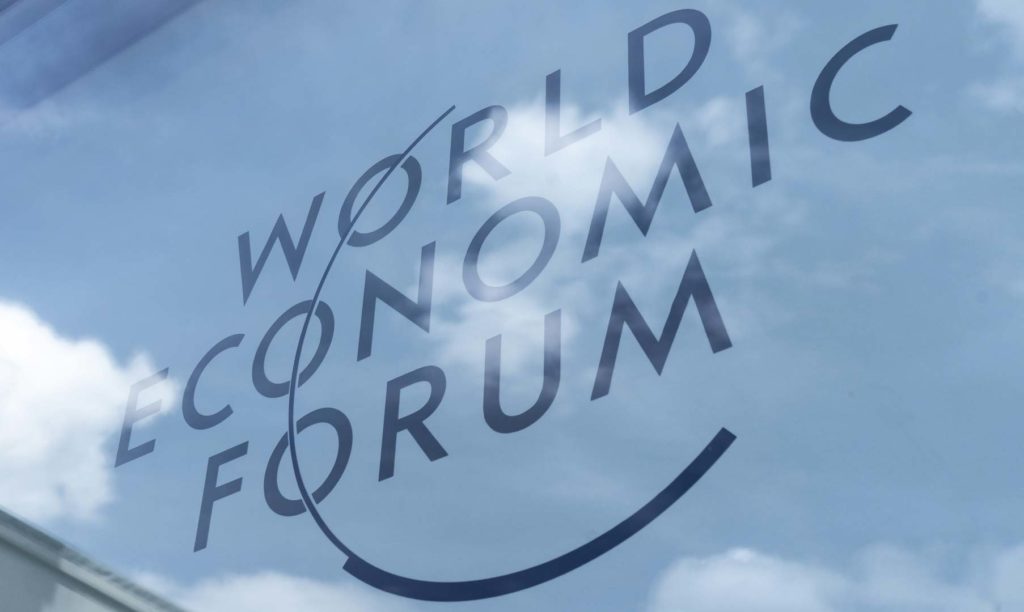
In the first gathering of the world’s investors, heads of state and business leaders in over two years, Russia’s invasion of Ukraine dominated last week’s World Economic Forum (WEF) annual meeting (Davos 2022). In addition to calls for action to support Ukraine, there was a lot of analysis of the effect the war is having across the world, especially on energy prices, which have many governments backpedaling on decarbonization commitments.
But US climate envoy John Kerry was quick to stress that the war should not be a reason to return to old ways and ramp up investments in fossil fuels again. “We cannot be seduced into believing that this suddenly is an open door to going back and doing what we were doing, which created the crisis in the first place,” he said.
The steep rise in oil prices is also exacerbating food shortages and with Ukraine and Russia responsible for an estimated 30% of global wheat supplies, Davos heard how many African countries, which rely on imported grain, now face famine.
Despite the natural spotlight on the war on Ukraine — or perhaps because of it — the climate crisis got significant air time, with one-third of the event’s panels focusing on climate change or its impacts. While once relegated to off-site discussions, environmental topics now underpin much of the event, with a clear consensus that the planetary threats before us deserve our attention. But just how much leaders are willing to do to thwart them has yet to solidify.
A half-term report on climate (in)action
Sandwiched between the COPs in Glasgow and Egypt, the annual meeting in Davos was an opportunity to present a half-term report on the progress made in addressing the climate crisis over the last six months. The title of one panel, “Moving climate debate from ambition to delivery,” is telling enough: There’s little to show for the much-heralded pledges; leaders are still stuck on how to move from commitment to action.
According to analysis released to coincide with Davos, all the G20 nations have so far failed to make new enhanced emission reduction pledges to keep the world on track to meeting the UN’s 1.5°C global warming target this year. For years, governments and corporations have talked about the need for change and the need to do things differently, but business as usual — and piecemeal solutions that fit neatly within it — still dominates how we approach the existential threat of the planetary crisis.
Soil and water make it to the top table at Davos
It’s easy to become disheartened and numb to the rhetoric of big promises when so much is at stake and so little has been done about it. Yet it’s worth noticing how the discussions at Davos have evolved, with historically sidelined environmental issues moving into the mainstream.
Conversations this year seemed to shift significantly beyond carbon with talks on how we use land and manage water. As panel moderator and CNBC journalist Steve Sedgwick said: “If we are serious about sustainability, we need to move the discussion on from energy and industry to food systems.”
Farmers found a seat at the table and regenerative agriculture, while not a new concept, became something of a buzzword around the conference halls and break-out rooms. Soil was feted as an asset and farmers themselves described as an eco-workforce. As the people who actually grow our food, integrating agricultural voices and partnering with farmers in the sustainable transformation of the food system is critical, since the land sector alone could contribute about 30% of the global mitigation needed in 2050 to deliver on the 1.5 °C target.
Water also elbowed its way to the front of the stage. Davos saw the launch of a new Global Commission on the Economics of Water, co-chaired by Johan Rockström, a director of the Potsdam Institute for Climate Impact Research and leader behind the planetary boundaries framework, which identifies the nine processes that regulate the stability and resilience of the Earth.
“Adapting to change in the world we live in today is about managing water,” Rockström said. This means reconnecting to the hydrological cycle because, for the first time, we now have scientific evidence that we are impacting the very source of water, namely precipitation, which is something that we’ve never had to consider before.
The commission will look at the true economic value of water and whether we should put a price on it “…to reward those who are stewards of fresh water,” added Rockström.
Water is, of course, integral to our food systems, with around 3,000 liters required to produce the daily food needs of a single person. But Rockström also made the point that with the added recognition of soil’s importance as a carbon sink, we’re presented with a win-win situation, because the more carbon there is in the soil, the better it is at holding water, which in turn is better for the crops growing in it.
The final verdict
Despite the collective sense that global conferences like WEF come and go with few concrete outcomes, there’s something to be said for the importance of bringing the world’s decision makers under one roof for a forced look at the state of the world. While we won’t necessarily see the fruit of the closed-door or informal conversations that take place — where influence is often yielded at WEF — it’s safe to say we’re still not witnessing a reckoning with the status quo. Far too many attendees still believe that incremental tweaks and technologies that don’t yet exist are enough to usher us out of the planetary crisis.
The science, however, has spoken — and it’s clear that the only way to avoid the worst is through the rapid, deep transformation across all sectors. This will require leaders to ask the tough questions, make hard decisions and demonstrate courage. The world is watching, and with mere months before COP27 in Egypt — and lackluster action from governments — businesses have an increasingly weighty responsibility of charting a new path forward in a rapidly narrowing timeframe.
Latest resources

Ukraine crisis: how sustainability can minimize risk and shape a resil...
Keeping sustainability efforts on track can help businesses to prepare for future shocks brought on by the environmental crisis.

Sustainable transformation: what will it take?
Introducing Generation Glasgow and the quest to tackle barriers to change.
